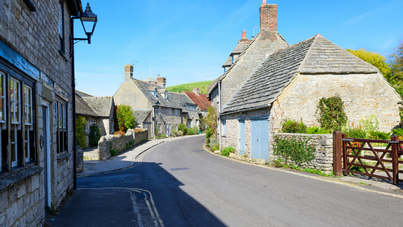Authors
This article is one in a series looking at the impact of public rights on land intended for development. In this article, we will look at the impact of applications for Town and Village Green and Common Land status.
If you intend to develop or sell your land for development then a registration as common land or as a town or village green or an application for such registration could cause significant delay and cost or prevent the development all together.
Common Land
Common land is land where other people, known as “commoners”, are entitled to use the land or take resources from it. You can check if your land is registered as common land in the commons register of your local authority. If it is common land you will need to consider the impact that may have on a future development. It may be that not all your land is common land and the land that is allocated as common land can be accommodated within the development. If works are required to be carried out to the common land, such as erecting new fences or buildings, making ditches or banks or building surfaced roads, paths or car parks, then consent of the Planning Inspectorate on behalf of the Secretary of State for Environment, Food and Rural Affairs will be required.
Town and Village Greens (TVG)
A landowner can find out from the local authority whether its land is registered as a TVG. If it is not, there is still a risk to the land of an application being made for the land to be given TVG status.
Under the Commons Act 2006, there is a statutory right to apply to register land as a TVG if “a significant number of the inhabitants of a locality or of any neighbourhood within a locality, have indulged as of right in lawful sports and pastimes on the land for a period of at least 20 years”. Sports and pastimes cover a wide range of activities including dog walking, picnicking, children’s games, etc.
Applications to register land as a TVG are often used by those opposed to development to delay or prevent a development. Anyone can apply, at little cost. Once registered, it is illegal to build on the land and no compensation is payable for its lost use.
Amendments to the legislation were introduced in 2013 which exclude the statutory right in certain circumstances (“trigger events”). Trigger events are events which occur in respect of development through the planning system. If a trigger event has occurred the relevant local authority cannot accept a TVG application for the relevant land until a terminating event has occurred.
Trigger events in England include the publication of an application for planning permission for the land and the land being included for potential development in a draft local plan, development plan or neighbourhood plan proposal. The Court of Appeal decision in Wiltshire Council v Cooper Estates Strategic Land Ltd 2019 EWCA Civ 840 (16 May 2019) clarified that “potential” for development meant “there would ultimately be a form of development on the land that would be acceptable [and the land] had to be the subject of an allocation [in a development plan document] or something of essentially the same meaning” and should be widely interpreted. The land in this case was not identified as one of the 16 strategically important sites in Wiltshire Council’s Development Plan but was in the Development Plan as land falling within the relevant settlement boundary for which the presumption in favour of sustainable development applied. This was enough to be a trigger event.
A TVG application can be revived if the relevant trigger event no longer applied, for example the planning application is withdrawn or refused or a planning permission is granted but lapses.
The timing of an allocation of the land in the relevant development plan or of an application being made is, therefore, crucial.
Deregistration
Pursuant to section 16 of the Commons Act 2006, it is possible for a landowner to apply for common land in its ownership to cease to be registered as common land or for a TVG to be deregistered. If the land to be released is greater than 200sqm a proposal must be made to replace it with other land. In considering any application for deregistration, the Planning Inspectorate will take into account the interests of those who have rights over the land or who occupies the land, the interests of the neighbourhood, the public interest and any other matters considered relevant.
Prevention
Prevention is, of course, better than cure and, as a result, a landowner should actively manage and farm its land to safeguard its position as much as possible. See our article at Preparing your land for sale or development Part 3: On the ground considerations which considers possible safeguarding measures. Record keeping is important including cropping records and evidence of trespass and challenges of trespassers. Taking steps to stop the period of use of land “as of right” and preventing the accrual of the 20 year qualifying period is key.
Further and more detailed information about other elements of strategic land can be found here.
This article is for general information only and does not, and is not intended to, amount to legal advice and should not be relied upon as such. If you have any questions relating to your particular circumstances, you should seek independent legal advice.
Authors
Michelmores Property Development Club
The Michelmores Property Development Club (PDC) is a forum for developers and property professionals to connect and share knowledge. The Club is celebrating its 22nd...
Planning Primer
NPPF & PPG changes, Planning and Infrastructure Bill, Natural Capital update Join us for the next Planning Primer seminar at Cheltenham Racecourse on Wednesday 2...
Michelmores Property Awards
Celebrating the best of property, development and construction in the South West The Michelmores Property Awards celebrate the best property, development and construction projects in...





